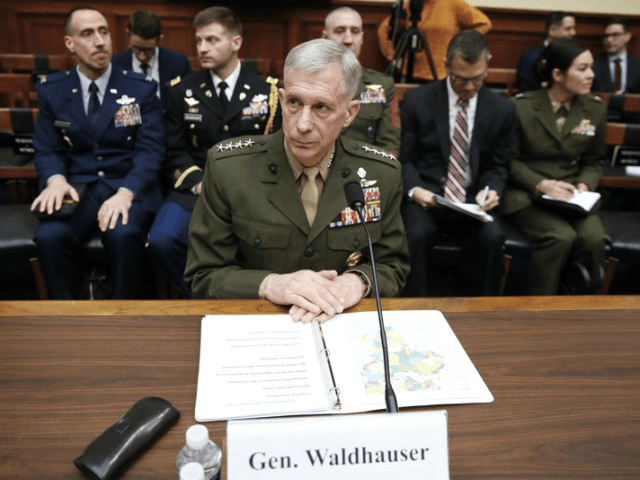WASHINGTON, DC — The American armed forces are maintaining surveillance over “Chinese encroachment and emergent military presence” in the African country of Djibouti, home to Beijing’s first overseas naval base, the top U.S. commander in the continent told lawmakers.
Djibouti also houses military bases for other countries, including the largest American permanent military installation in Africa—Camp Lemonnier.
In the 2018 U.S. Africa Command (AFRICOM) posture statement presented to the House Armed Services Committee on Tuesday, General Thomas Waldhauser notes:
[A]s the strategic environment [in Africa] becomes more crowded and competitive, our engagement with external actors, like China and Russia, will continue with an open and clear discussion of intersecting interests and differences. … Our relationship with Djibouti is strong, though we are carefully monitoring Chinese encroachment and emergent military presence.
…
Last August, the Chinese opened their first overseas naval base in Djibouti. U.S. Africa Command views security and access to Djibouti as a top priority. Consequently, we continue to monitor this development to ensure U.S. interests are not deterred.
Cmdr. Waldhauser acknowledged that Camp Lemonnier is “a key component” of AFRICOM’s “regional readiness.”
He noted that jihadist groups like the Islamic State (ISIS/ISIL), al-Qaeda, and their affiliates continue to grow and recruit from disenfranchised populations across Africa, particularly in Libya.
The United Nations-brokered government in Libya has struggled to bring the country together, prompting the AFRICOM commander to warn that “the risk of a full-scale civil war remains real” there.
Referring to Libya, Gen. Waldhauser told lawmakers:
Following its late 2016 expulsion from [Sirte], ISIS-Libya remains dispersed and disorganized and likely capable of little more than localized attacks.
Meanwhile, al-Qa’ida in the Lands of the Islamic Maghreb (AQIM) in Libya maintains a low profile yet still aims to use illicit means to move fighters and weapons and focuses on building influence within Libya’s various extremist groups.
The disrupted state of VEOs [violent extremist organizations], however, has not translated into a stable Libya. Libya remains politically and militarily divided, with loyalties shifting based on tribal interests and personalities involved in the struggle for power.
Gen. Waldhauser added that al-Shabaab in East Africa and Boko Haram in the western part of the continent continue to threaten U.S. interests and the local population.
The top U.S. general identified AFRICOM’s primary goals as:
Develop security and stability in East Africa; degrade VEOs in Sahel and Maghreb regions/contain instability in Libya; contain and degrade Boko Haram and ISIS-West Africa; interdict illicit activity in the Gulf of Guinea and Central Africa; and build peacekeeping / Humanitarian Assistance and Disaster Relief (HADR) capacity of African partners.
The U.S. State Department recently designated several Islamic State affiliates in Africa as foreign terrorist organizations, including ISIS West Africa, ISIS Somalia, ISIS Egypt, and Jund al-Khilafah in Tunisia.

COMMENTS
Please let us know if you're having issues with commenting.